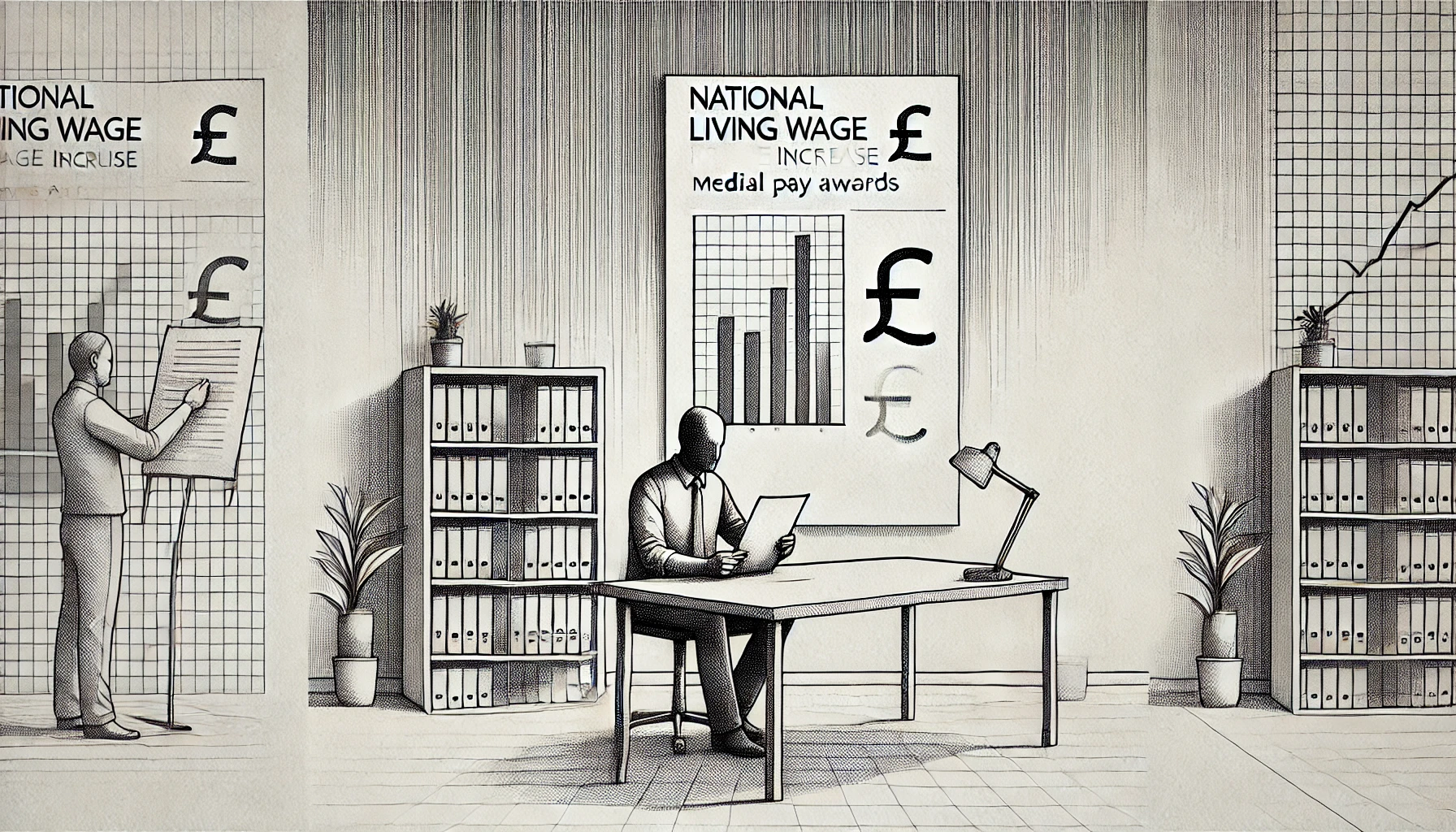Rob Moss, writing for *Personnel Today*, reports that the April 2024 9.8% increase in the national living wage (NLW) has significantly influenced the median basic pay award, maintaining it nearly three percentage points above the inflation rate. According to Brightmine’s data, the median pay award for the three months ending June 2024 was 4.9%, consistent with the previous quarter. The Bank of England’s achievement of a 2% inflation target in May and June suggests that pay awards will likely adjust, with predictions pointing to a decrease in pay settlement levels in 2025.
The Labour government aims to alter the Low Pay Commission’s (LPC) remit to consider living costs and eliminate age-based minimum wage rates for adults. This policy would raise wages for 18 to 20-year-olds from £8.60 to £11.44 per hour, a substantial increase. However, the LPC and Treasury may phase this change to mitigate its impact. It’s worth noting that the Conservatives previously lowered the NLW age threshold from 25 to 23 in 2021, and to 21 in April 2024, and Labour may adopt a similar phased approach.
Sheila Attwood from Brightmine highlighted that pay awards are now more stable and consistent, with fewer high pay settlements observed. As inflation stabilises, a more predictable compensation approach is anticipated. Attwood also mentioned that the government typically announces minimum wage rate increases in November, allowing organisations to prepare for potential budget impacts.
Despite the increased NLW, the Office for National Statistics reported a slowdown in average regular earnings growth to 5.7% for the three months ending in May 2024, the slowest since August 2022. Brightmine’s analysis of 145 pay settlements covering 370,000 employees revealed that 16.6% of deals exceeded 7%, primarily for NLW workers. Excluding these, the median settlement was 4.3%. Additionally, 47.3% of settlements were between 4% and 5%, with 4% being more common. However, 61% of pay deals were less favorable compared to 2023 settlements.
Rachel Reeves, the Chancellor, indicated that the Treasury might accept recommendations from public sector pay review bodies for a 5.5% pay increase for NHS staff, teachers, police, and prison officers.
Conservatives may view the Labour government’s aggressive wage policies with skepticism, fearing that such substantial increases, especially for younger workers, could place undue strain on businesses, potentially leading to reduced employment opportunities and increased costs for consumers. The emphasis on inflation stability and a cautious approach to wage adjustments aligns with a preference for economic prudence and sustainability.
Source: Rob Moss, “National living wage hike drives median pay award,” Personnel Today.
Source: https://zapier.com/
Original title: Impact of National Living Wage Increase on Median Pay Awards in 2024
Author: Ralph Hawthorn

